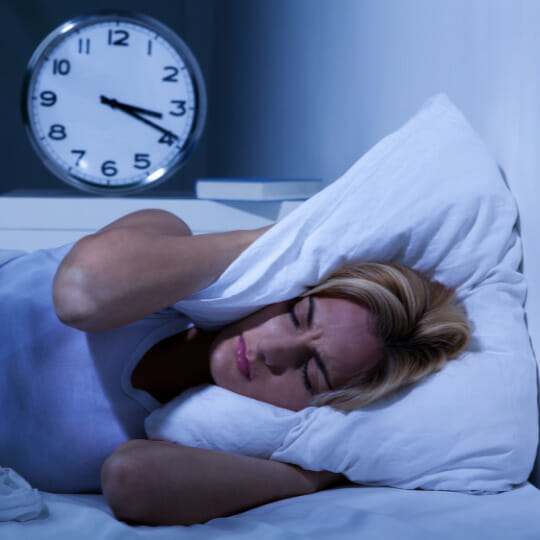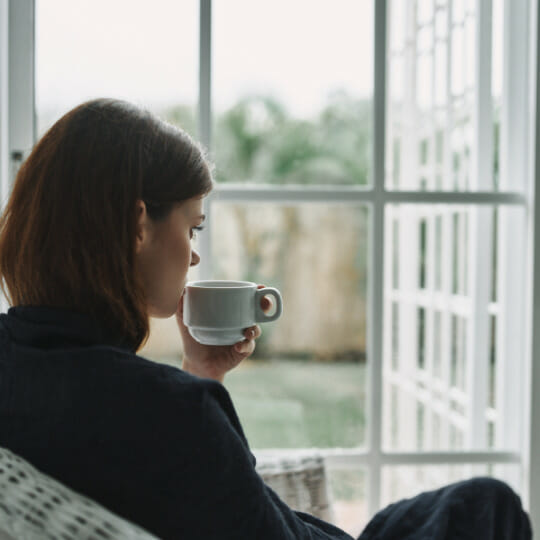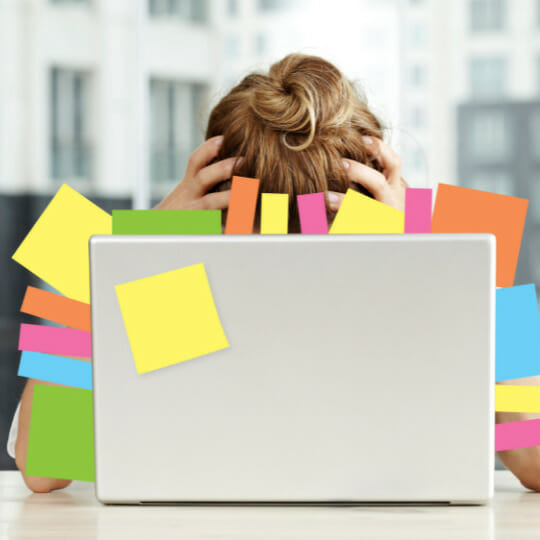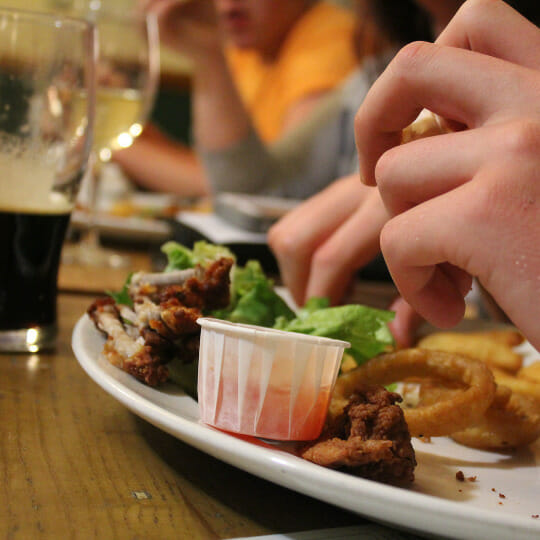
Today I want to share a bit of my journey around sleep hacking to overcome insomnia.
I’ve had insomnia for most of my life off and on, and for me, there is a clear correlation with the amount of stress that’s going on in my life. But with the onset of perimenopause, that has ramped up and there are other things that are also causing insomnia such as night sweats and even certain things that I’ve eaten or drunk.
So I’ve been on a mission to hack my sleep.
I’m going back to my roots.
That is, biohacking is something I’ve done for many years, but I just haven’t spoken about it much in the last couple of years.
Biohacking is where you make small tweaks to your daily habits to improve certain areas of your health or your life.
I want to share with you what I’ve been doing, what I’m doing next, and how it’s all working so that you can get your own ideas for hacking sleep for yourself or perhaps for the clients that you’re working with.
Remember that everybody is different and has their own individual formula for improving sleep or any other area of well-being. So what’s working for me may not work for you, but it could be worth trying
The approach you take to remedy sleep and the hacks you decide to use will depend on what’s causing your lack of sleep.
My catalyst to get back into biohacking was the onset of perimenopause around 18 months ago when a lot of things changed for me.
One of the first things I noticed was that my anxiety increased, and I developed insomnia again after many years without a hitch, and I had night sweats.
Through self-observation, I realised these things were related and they tended to make each other worse. The more anxious I became the less I slept, and the less I slept the more prone to anxiety I was, and the worse my night sweats, the less I slept.
Obviously, none of these things are very good for mental well-being or productivity or health so I was motivated to experiment and make some changes.

Lack of sleep tends to make you grumpy, it tends to make you crave sweet foods and to feel too lethargic to exercise.
And all of that started happening to me.
So here’s how I worked things out.
I actually started the process of unpacking by experimenting with some supplements. The reason I started here is because it was the easiest and fastest way to effect change.
Firstly, I got back into a routine of taking a high-grade multivitamin and mineral formulation that I have used on and off for years because the research is clear that the more stress your body is under, the more that stress robs nutrients from your body (oxidative damage).
I won’t go into the complex biology in this episode and will save that for later.
That was my baseline, and I also consulted a naturopath to get some specific supplements for my perimenopause symptoms. She gave me an Ashwagandha formulation, a magnesium, vitamin B and zinc formula, and an herbal preparation to help with night sweats.
As a result, I got fairly rapid relief from stress to the point where I was able to sleep better, and I also felt calmer during the day. That took about three weeks.
Before supplementing, I was waking up around five or six times at night with a hot flush that caused me to wake up and then stay awake. Falling asleep was not the issue, it was staying asleep, particularly at that critical time of 1 to 3 a.m.
After supplementing, my sleep was more regular, I had fewer flushes, and I was staying asleep better or more easily falling back to sleep.
At the time all of this was going on, the pandemic hit and I had anticipated a downturn in workload through my contracting roles. As a result, I decided to take on some new private clients running a pilot program.
What actually happened was that both of my contracting roles got a lot busier, so I was juggling too much busier contract roles in addition to my own clients.
The other thing was that with my own clients, it wasn’t a set-and-forget, rinse-and-repeat program that I had run before. It was developmental work and consideration to get what I was doing right. I believe that creativity is the opposite of stress. When you are feeling stressed and under pressure then your ability to think creatively is compromised.

Also, going through menopause makes you realise that your capacity to do things is diminished. It’s a combination of brain fog, fatigue, and of course insomnia and anxiety.
That’s what happened to me.
So what I had to do was to reach out to my contract roles and talk about changing my roles, doing less of the detailed stuff that doesn’t light me up and which I find draining, and that took a load off.
Switching off at 5 p.m. was also a critical part of this formula for me.
It was a hack that was well worth it. Switching off at 5 p.m., I was finishing my screen time at that critical period around sunset when we wanted to decrease cortisol levels rather than keep them pumped up with artificial light.
This helped me to wind down, reduce anxiety and sleep better.
Before that, I was prone to catastrophizing and making everything seem worse or more urgent than it was.
By lowering my workload and switching off earlier, I had time to unwind, relax and ‘de-focus’ so I could sleep better each night.
I’ve since noticed that if I have to teach at night or if I watch an intense or scary movie, or read a thriller novel, it pushes up my anxiety levels enough that I go back to 1 a.m. wake-ups.
A bit of research and some experimenting on my own helped me to realise that certain things would trigger night sweats, or even hot flushes during the day.
For me these triggers included portion size, alcohol, sugar, or more than 2 cups of coffee per day.
With portion size, I’ve worked out that if I eat after 7pm and/or if I have a meal that’s too big, I won’t fall asleep easily or stay asleep. I tend to sleep better if I’ve had a small serving of complex carbohydrates, plenty of veggies and lean protein for dinner.
Anything that’s salty, fatty, sugary or too starchy (like a risotto) will wake me up at an odd hour, either starving, with heartburn or thirsty.

With alcohol, I have found that champagne, certain spicy spirits like cinnamon whisky, and some wines, will cause me to wake up at 1 – 3am or to have night sweats. It seems related to the amount of sugar.
Having one white wine with dinner, or a white spirit, seems to be ok. But regardless of the alcohol I drink, there is definitely a pattern of increased sweating and I wake at least twice per night with this and struggle to sleep again.
I am still experimenting with sugar, but have found that evening chocolate or dessert might be a trigger for poor sleep, in the absence of alcohol, late work or other triggers.
It’s well known that when you are a bit depressed you crave carbs, and that is related to an increase in tryptophan and therefore serotonin which improves mood – in the absence of protein which can block this pathway. I have many more experiments ahead on this, so I’ll come back to you on it.
With caffeine, I’ve worked out that I can have 1 – 2 espressos per day (I make mine with oat milk) and be ok and sleep well if I have them before 12pm.
But, there are some exceptions to this rule.
If I’ve been awake since about 3 am and haven’t been able to get back to sleep, or if I am waking up tired and have two coffees on an empty stomach at a time when I have a lot of stress in my life, then those two coffees don’t help anything and I tend to have a peak and then a crash, followed by a jittery day and/or a restless or sleepless night.
I remember one day waking up after having a terrible night’s sleep, where I perhaps only had three hours of sleep. I had coffee in the morning and I had a rocket fuel boost of energy followed by a big crash and I felt listless all day.
What I’ve learned is that I have a tipping point for caffeine and I need to be careful not to cross the tipping point. If I am a bit fragile or tired or stressed and my capacity to cope with caffeine is lower and it has an amplified effect on anxiety, mood, sleep and energy levels.
The optimum time to have caffeine is 60-90 minutes after waking or around 10am. The reason is that when you wake up in the morning your cortisol levels naturally increase in response to sunlight. If you inject caffeine into that equation then it prevents your body from creating its own natural energy at that time.
I am yet to do any experimenting with exercise specifically – remember that good science means one thing at a time.
But for now, I wanted to say that I’ve always been somebody who likes exercising in the afternoon. As a personal trainer, I know that exercise done too late can be overstimulating and affect your ability to fall asleep or stay asleep.
I will come back to you on this one.
At different stages of life, we experience hormonal and physiological changes that tilt our world on its axis.
When that happens, what used to work for you in terms of your biology and physiology might change such that you need to revisit things.
With the onset of menopause, I’ve started experimenting with my body – biohacking – to help me understand my triggers for insomnia and anxiety.
So far, I’ve worked out some important things about supplements, stress, and food and drink so I’m much more aware of nights that I AM sleeping well.
The real benefit of this experimentation is that I am super clear on my own personal formula for a good night’s sleep. I am following my own coaching framework to figure this out.
Working with a coach can be so helpful because they can help you to work out what to experiment with, and to focus for a long enough period of time to uncover your blind spots and reveal your own secret formula for healthy sleep, weight loss, stress reduction or any other challenge that you’re facing.
If you’re looking for a coach and need a referral, please reach out and let me know.
Understanding who you are and what you need will allow your business to thrive! If you’re truly ready to break old habits and get out of the rut I encourage you to check out the Habitology membership.
Learn more here: